Harman Kardon and Bowers & Wilkins are two of the most well-known and respected brands in the audio industry, known for their high-quality speakers, headphones, and other audio equipment.
Both brands have a long history of producing premium audio products and have earned a loyal following of audiophiles and music lovers alike. If you want to know which brand is the better option for you, we got you covered.
Here, we will compare Harman Kardon and Bowers & Wilkins based on their products’ features, design, performance, and overall brand reputation.
Pros And Cons
Harman Kardon
Pros:
Harman Kardon is a highly regarded brand of high-end audio equipment, known for producing high-quality sound with a full range of frequencies, sleek and modern designs, a wide range of products, advanced features, and durability that can last for years.
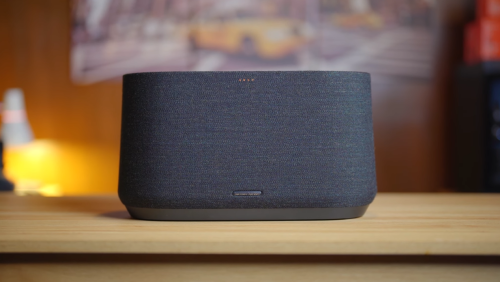
Cons:
Harman Kardon products tend to be more expensive than other audio brands, may have limited customization options, and may produce bass-heavy sound that may not be suitable for all types of music. In addition, these products may not be as widely available as other audio brands, making them more difficult to find in local stores.
Bowers Wilkins
Pros:
B&W products are known for their exceptional build quality and attention to detail, as well as their impressive sound performance. They use high-quality materials and often innovative design elements to create speakers and headphones that are aesthetically pleasing and sound great. Additionally, B&W offers a wide range of products, so consumers can find something that fits their needs and budget.
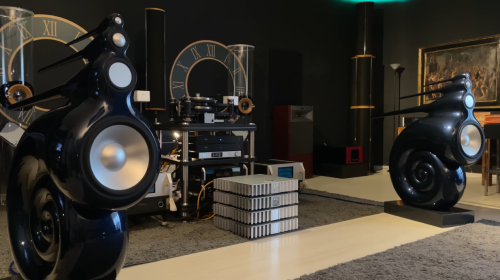
Cons:
One potential downside to B&W products is their price point, which can be quite high. While the quality may be worth it for some, others may find it difficult to justify the cost. Additionally, some critics argue that B&W’s sound profile can be overly analytical, lacking warmth or “musicality” in some cases. Finally, as with any audio equipment, personal preference is a factor, and some people may simply not enjoy the sound signature of B&W products.
History
Harman Kardon
Harman Kardon is a high-end audio brand that was founded in 1953 by two engineers, Sidney Harman and Bernard Kardon. The company began as a small audio equipment manufacturer and quickly gained recognition for their innovative designs and high-quality sound.
In 1956, Harman Kardon released the first stereo receiver, which set the standard for high-quality stereo sound. Over the years, the company has continued to innovate and produce a wide range of high-end audio products, including speakers, amplifiers, and home theater systems.
Suggested Readings:
Bowers Wilkins
Bowers & Wilkins (B&W) is a British audio company that was founded in 1966. They initially produced loudspeakers for professional use before expanding into the consumer market. B&W gained a reputation for producing high-quality products and developed innovative technologies such as the Nautilus speaker.
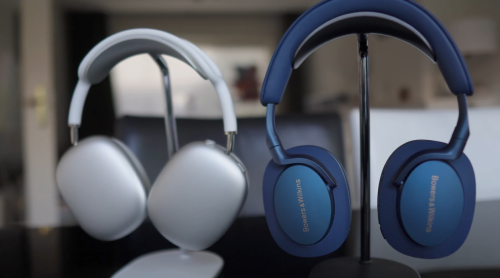
They expanded their product line to include headphones and home theater systems. B&W continues to innovate with products like the Formation wireless speaker system and the PX noise-cancelling headphones.
In 2020, B&W was acquired by Sound United, but they remain a respected name in the audio industry known for their attention to detail and commitment to quality.
Sound Quality
Harman Kardon
Harman Kardon is widely recognized for its high-quality sound. Their products are known for producing a full range of frequencies, with a particular emphasis on delivering clear, crisp mid-range and high-frequency sounds. Many users appreciate the deep, rich bass that Harman Kardon products can produce, although some may find it to be too heavy for certain types of music.
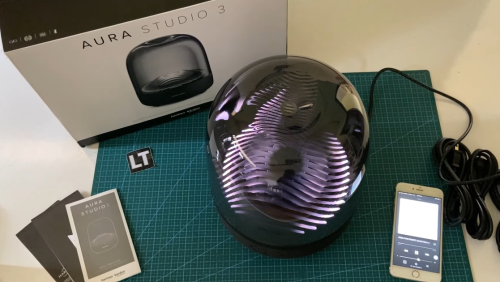
Bowers Wilkins
Bowers & Wilkins (B&W) is known for producing high-quality audio products that offer excellent sound performance. Their products are designed to produce accurate and detailed sound across the entire frequency range, resulting in a natural and immersive listening experience.
The company also employs advanced technologies such as diamond tweeters, carbon fiber drivers, and unique cabinet designs to enhance sound quality.
Features
Harman Kardon
- Bluetooth connectivity
- Wi-Fi compatibility
- Voice control via Alexa or Google Assistant
- Multi-room audio support
- High-quality audio codecs like AAC and aptX
- Digital signal processing for optimized sound quality
- Customizable EQ settings
- High-quality drivers and components
- Advanced amplifier technology
- Sleek and modern designs
- Durable construction and materials
- Durable construction and materials
- User-friendly interfaces and controls
- Wide range of products, including speakers, receivers, amplifiers, and more.
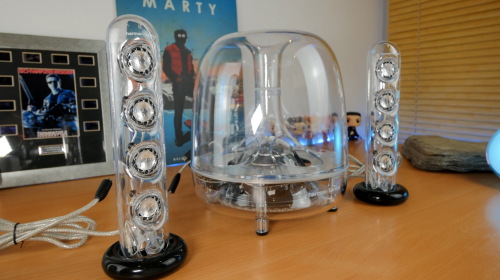
Bowers Wilkins
- Wireless connectivity (Bluetooth, Wi-Fi)
- Noise-cancellation technology
- Multi-room audio support
- Voice control compatibility with virtual assistants
- High-resolution audio support (FLAC, WAV)
- Mobile app control
- Innovative design elements (e.g. unique cabinet designs)
Build Quality
Harman Kardon
The brand uses high-quality materials and components in its products, such as sturdy metal frames, robust speaker cones, and high-grade amplifiers. Many Harman Kardon products are also designed to be compact and portable, making them ideal for on-the-go use.
In addition, the company provides warranties and customer support to ensure that its products meet high standards of reliability and customer satisfaction.
Bowers Wilkins
The company uses high-quality materials such as aluminum, carbon fiber, and Kevlar to create products that are both durable and visually appealing. B&W products are also known for their attention to detail and precision in manufacturing, resulting in products that are built to last.
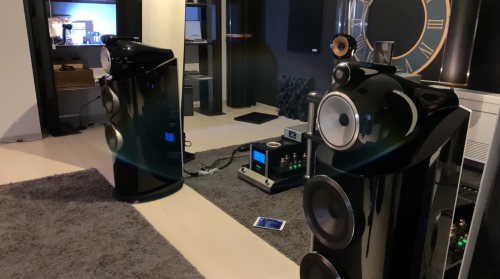
The company’s speakers, in particular, are renowned for their sturdy construction and robust build quality.
Ease of Use
Harman Kardon
Many products come with intuitive interfaces and controls that are designed to be simple and straightforward, even for those who are not technically inclined. In addition, the company provides detailed user manuals and online resources to help users set up and operate their products.
Bowers Wilkins
Bowers & Wilkins (B&W) products are designed to be user-friendly, with features that contribute to their ease of use. These features include plug-and-play setup, wireless connectivity, mobile app control, intuitive controls, and voice control compatibility.
(Speaking of wireless connectivity, you might want to check out the best wireless speakers for TVs next!)
Value
Harman Kardon
Prices can vary depending on the specific product and model, but in general, Harman Kardon products can range from a few hundred dollars to several thousand dollars. Here is a breakdown of the estimated price ranges for various Harman Kardon products:
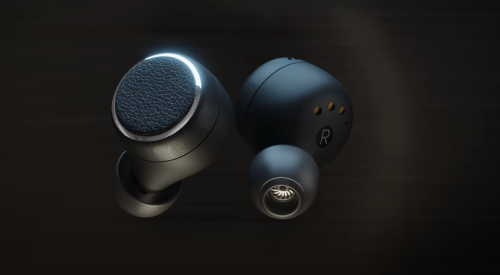
- Headphones: $44 to $500
- Soundbars: $150 to $1000
- Earbuds: $40 to $120
- Home theaters and surround speakers: $150 to $1700
Bowers Wilkins
While some of their products are on the higher end of the price spectrum, many fall within the midrange price point. Here are some approximate price ranges for B&W products:
- Earbuds/Headphones: $320 – $550
- Subwoofers: $900 – $3200
- Speakers: $500 – $8400
Space Requirements
Harman Kardon
Harman Kardon products have varying space requirements depending on the specific model and type of product. Headphones and earbuds require very little space, while soundbars are typically compact and require a flat surface to be placed on or mounted to.
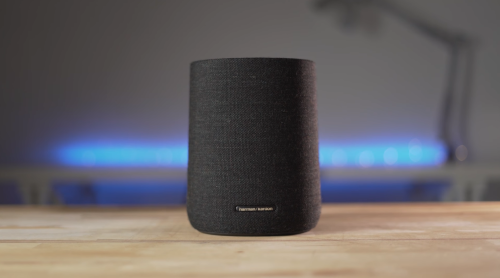
Home theaters and surround speakers will require more space as they consist of multiple speakers and subwoofers. It is important for users to consider the space requirements of each specific product and ensure they have enough room to use and enjoy it properly.
Bowers Wilkins
Same asHarman Kardon, Bowers & Wilkins (B&W) offers a range of audio products with varying space requirements depending on the specific model and intended use. Subwoofers can range in size from compact to large, and larger subwoofers may be more suitable for larger rooms.
Earbuds and headphones are designed to be compact and portable, while speakers can range in size from small bookshelf models to large floor-standing models. Larger speakers may require more space to operate effectively and may need some distance from walls and other objects to operate optimally.
Remote Controls
Harman Kardon
Harman Kardon products typically come with remote controls that allow users to adjust volume, EQ settings, and other features from a distance. The remote controls are designed to be intuitive and user-friendly, with clearly marked buttons and a logical layout.
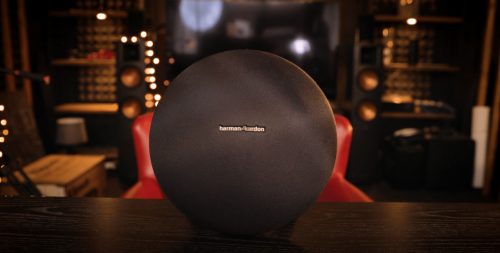
In addition to traditional remote controls, many Harman Kardon products also offer control via mobile apps, voice control, or other advanced methods, depending on the specific product and model.
Bowers Wilkins
B&W speakers typically do not come with remote controls, as they are designed to be used in conjunction with a separate amplifier or receiver that provides remote control functionality. B&W subwoofers may come with remote controls to adjust settings such as volume, crossover frequency, and phase.
Connectivity Options
Harman Kardon
Their products offer a wide range of connectivity options, including Bluetooth, Wi-Fi, wired connectivity, voice control, and mobile app control. These options allow users to easily connect their devices, stream audio content, and control their audio equipment via voice commands or mobile apps.
Bowers Wilkins
Bowers & Wilkins (B&W) products offer various connectivity options depending on the specific model and intended use. Wired connectivity is supported by many B&W products, including speakers and headphones that come with cables for connecting to devices. B&W products also offer wireless connectivity options such as Bluetooth and Wi-Fi for streaming audio from compatible devices.
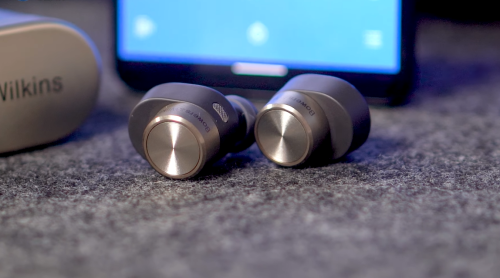
Some B&W speakers support multi-room audio, while others are compatible with virtual assistants like Amazon Alexa and Google Assistant for hands-free control. B&W mobile apps allow for further customization and control of audio products.
Power Range
Harman Kardon
The power range of Harman Kardon products varies depending on the specific product and model. Headphones and earbuds do not require a separate power source, while soundbars typically range in power from around 100 watts to 300 watts.
The power range for Harman Kardon home theaters and surround speakers can vary widely depending on the specific model and components, ranging from around 100 watts to over 1000 watts for full sound systems.
Bowers Wilkins
The actual power output of a device may vary depending on several factors, including the specific model and the type of amplifier or other equipment used to power it. As an example, the B&W 607 S2 bookshelf speaker is rated at 100 watts, while the B&W Zeppelin peaks at 240 watts, both of which are quite powerful.
Frequency Response
Harman Kardon
Headphones and earbuds typically offer a range of around 16 Hz to 20 kHz, while soundbars usually offer a range of around 40 Hz to 20 kHz. The frequency response range for home theaters and surround speakers can vary widely depending on the model, but most full sound systems offer a range of around 20 Hz to 20 kHz.
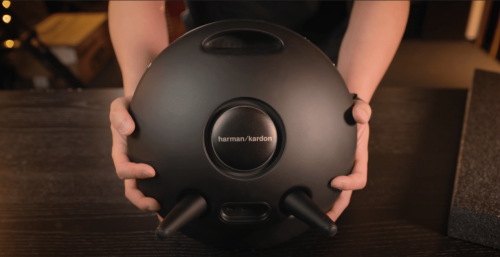
Bowers Wilkins
B&W speakers typically have frequency responses ranging from around 40Hz to 20kHz or higher, with larger and more powerful speakers able to reproduce lower frequencies more accurately. B&W subwoofers reproduce low-frequency sounds, typically starting around 20Hz or lower.
B&W earbuds and headphones have frequency responses ranging from around 10Hz to 20kHz or higher, while B&W wireless speakers typically have frequency responses ranging from around 50Hz to 28kHz or higher.
Conclusion
Ultimately, the decision between Harman Kardon and Bowers & Wilkins will depend on your personal preferences and needs, as well as your budget. It’s a good idea to personally test and listen to both brands’ products before making a final decision.
The post Harman Kardon vs. Bowers Wilkins — Brand Comparison appeared first on The Product Analyst.
from The Product Analyst https://theproductanalyst.com/harman-kardon-vs-bowers-wilkins/
No comments:
Post a Comment